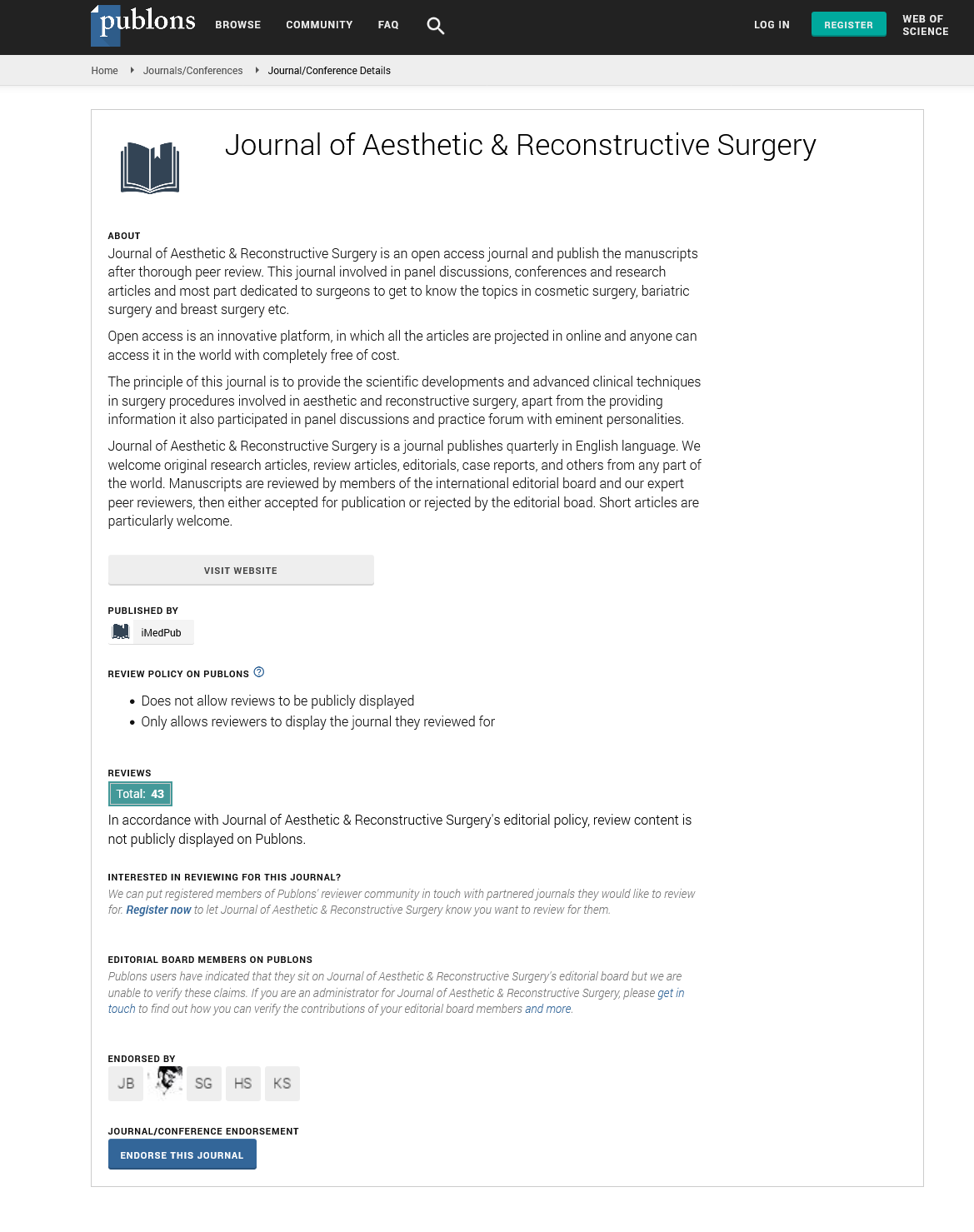ISSN : 2472-1905
Journal of Aesthetic & Reconstructive Surgery
Primary tendon grafting of flexor tendons injuries in zone II
2nd International Conference on Plastic & Aesthetic Surgery
July 27-28, 2017 Vancouver, Canada
Ahmed Abo-Hashem Azab, Raafat Abdallatif Anani and Mahmoud Elsayed Gouda
Zagazig University, Egypt
Posters & Accepted Abstracts: J Aesthet Reconstr Surg
Abstract
Background: Obtaining good functional outcomes after flexor tendon repair in zone II has always become a challenge due to being crowded by the FDP and the two slips of the FDS within a tight fibrossoeus tunnel, thus increasing the possibility of postoperative adhesions. Methods of primary flexor tendon repair are continuously being modified still today. For achieving better results, primary flexor tendon grafting was suggested as new approach for flexor tendon repair in zone II.
Methods: This study was conducted on 24 patients (30 digits) with primary tendon grafting which was done using palmaris tendon. Tendon graft interposition was done for FDP and FPL tendons distally, in zone I and proximally, in zone III and zone V for (respectively) bypassing zone II. FDS cut ends was done in situ in zone II. Modified Kleinert technique was chosen for rehabilitation and adjusted Strickland system for evaluation of TAM. Follow up of the ROM was extended up to six months postoperatively.
Results: Results described recovery of motion in 93.3% of cases. Excellent to good results account for 66.6% at 12 weeks postoperatively and 70% at 6 months postoperatively. Complications incidence was 19.2 % in the form of tendon rupture (6.7%) and superficial wound infection (12.5 %).
Conclusions: Results of this study revealed that primary flexor tendon grafting could be a competitive approach for flexor tendon injuries in zone II.
Biography
E-mail: aahazab2@hotmail.com
Google Scholar citation report
Citations : 89
Journal of Aesthetic & Reconstructive Surgery received 89 citations as per Google Scholar report
Journal of Aesthetic & Reconstructive Surgery peer review process verified at publons
Abstracted/Indexed in
- Google Scholar
- China National Knowledge Infrastructure (CNKI)
- Directory of Research Journal Indexing (DRJI)
- WorldCat
- Publons
- Geneva Foundation for Medical Education and Research
- Secret Search Engine Labs
- Euro Pub
Open Access Journals
- Aquaculture & Veterinary Science
- Chemistry & Chemical Sciences
- Clinical Sciences
- Engineering
- General Science
- Genetics & Molecular Biology
- Health Care & Nursing
- Immunology & Microbiology
- Materials Science
- Mathematics & Physics
- Medical Sciences
- Neurology & Psychiatry
- Oncology & Cancer Science
- Pharmaceutical Sciences

